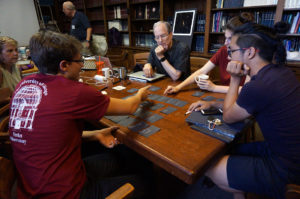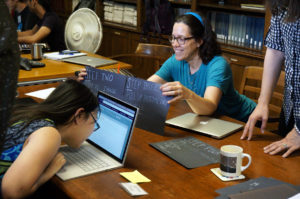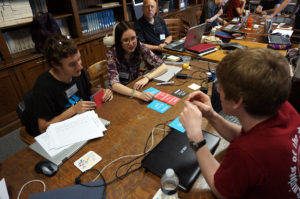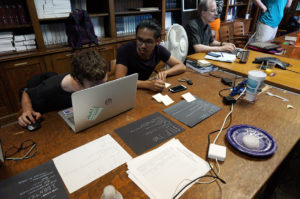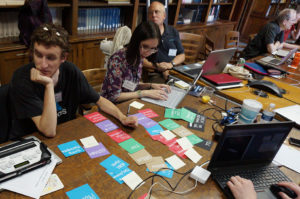Making Astronomy Accessible
This week, Alexandra Grossi (NCSU MGD ’17) and I travelled to Yerkes Observatory in Wisconsin. There we met with a team of researchers and educators committed to making the study of astronomy accessible to blind and low vision (BVI) high school students: the iDATA Project. BVI students currently interested in astronomy can’t access or analyze image data from the galaxy—data that an amazing network of telescopes, Skynet, provides 24/7.
The iDATA project, funded by a 2.5 million dollar NSF grant, engages a large team of researchers, scientists, educators and designers to tackle this problem. Our role: lead the user-centered design (UCD) team that will work with students to co-design Afterglow, the student portal to Skynet. Through this process, the iDATA team will co-design Afterglow with the help of hundreds of BVI students across the U.S. and Chile.
Our time at Yerkes this summer was the first step in this process. We tested out the first unit of UCD classroom activities with the Yerkes undergraduate interns who will take the activities to classrooms. As we move through each phase of this 3 year project, we plan to share our system and materials through a website so that any classroom can open up the user-centered design process to BVI students.
Here’s our first activity:
- (Short Version) An Introduction to User-Centered Design:iDATA-UCD-ACTIVITY-FOR-YERKES
- (Full Classroom Version: IDATA-ACTIVITY-01-INTRO-TO-HCD-4.0
- (Full unit of classroom activities also available in more accessible Google Docs.)

